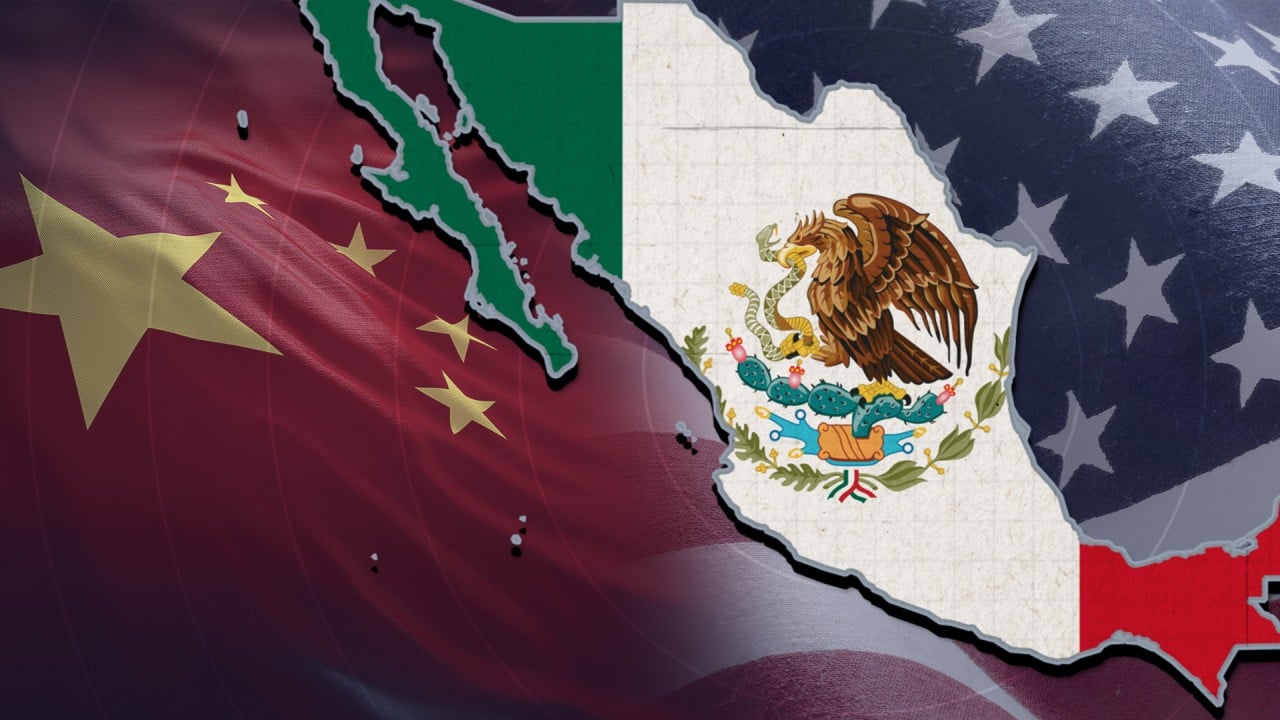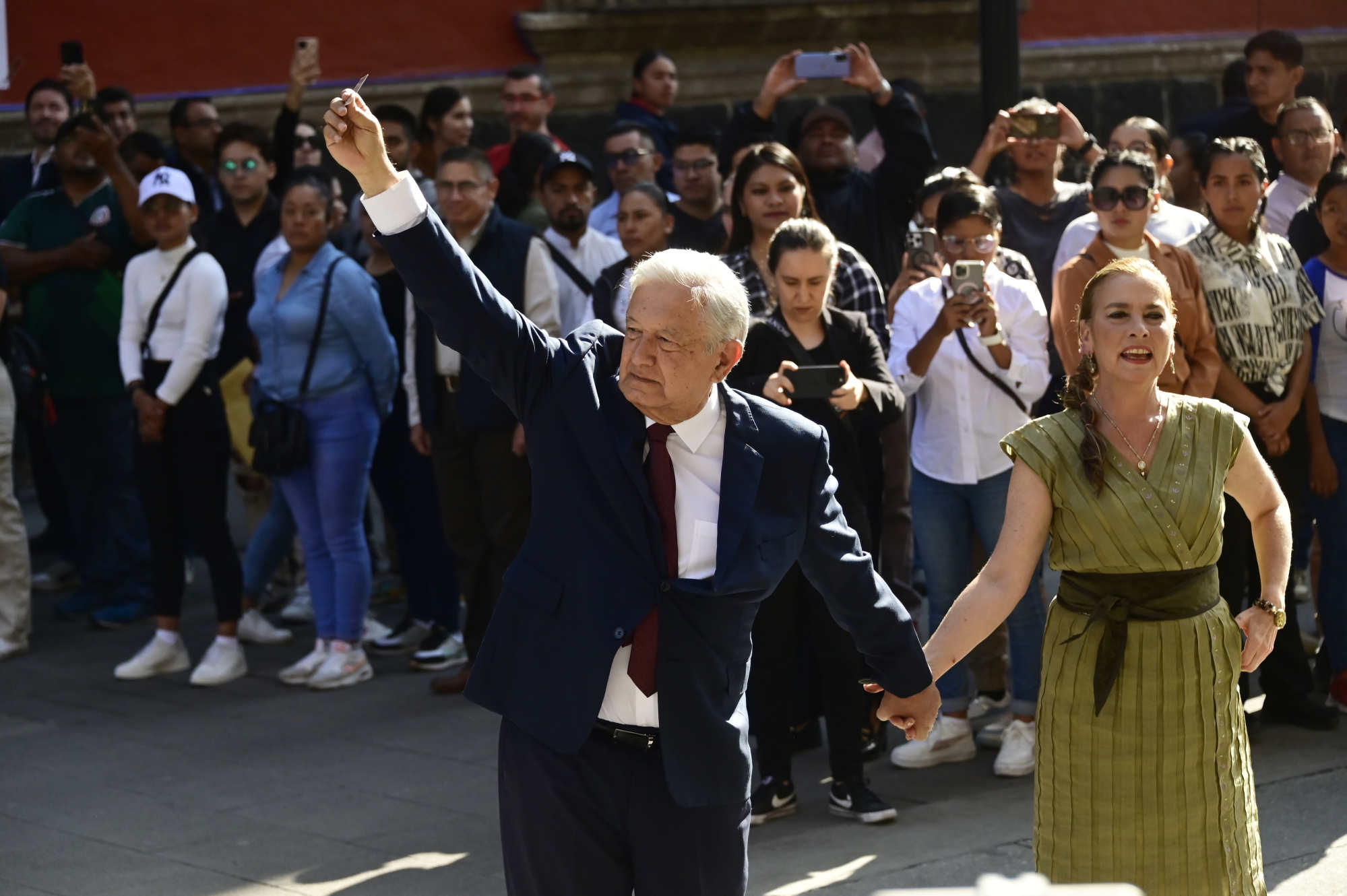Two dead after Mexico polling station attacks as country votes in elections marred by cartel violence
Two people died on Sunday after attacks on polling stations in the central Mexican state of Puebla during a general election, a local government security source told Agence France-Presse.
One of the victims died after unknown assailants entered a polling site in Coyomeapan to steal election papers, while the other was killed in a shoot-out after an attack on a polling station in Tlapanala, the person said.
Voting was suspended in Coyomeapan, the state electoral authority said.
Mexicans are voting on Sunday in historic elections weighing gender, democracy and populism, as they chart the country’s path forward shadowed by cartel violence.
With two women leading the contest, Mexico is likely to elect its first female president – a major step in a country long marked by its macho culture. The election is also the biggest in the country’s history.
More than 20,000 congressional and local positions are up for grabs, according to the National Electoral Institute.

Voters are choosing between a former academic who promises to continue outgoing President Andres Manuel Lopez Obrador’s populist policies and an ex-senator and tech entrepreneur who pledges to up the fight against drug cartels. A third, male candidate from a smaller party had focused his attention on the youth vote.
Turnout appeared to be high, with long queues of voters trying to cast their ballots early as much of the country continued to suffer a heatwave.
Nearly 100 million people are registered to vote in the race to replace outgoing Lopez Obrador. Voters were also electing governors in nine of the country’s 32 states, and choosing candidates for both houses of Congress, thousands of mayorships and other local posts.
The elections are widely seen as a referendum on Lopez Obrador, a populist who has expanded social programmes but largely failed to reduce cartel violence in Mexico.
His Morena party currently holds 23 of the 32 governorships and a simple majority of seats in both houses of Congress. Mexico’s constitution prohibits the president’s re-election.
Both major presidential candidates are women, and either would be Mexico’s first female president. A third candidate from a smaller party, Jorge Alvarez Maynez, trailed far behind.
Mexico City Mayor Claudia Sheinbaum is running with the Morena party. Sheinbaum, who leads in the race, has promised to continue all of Lopez Obrador’s policies, including a universal pension for the elderly and a programme that pays youths to apprentice.

09:30
China’s ‘gold rush’ in Mexico: why are Chinese companies investing south of the Rio Grande?
China’s ‘gold rush’ in Mexico: why are Chinese companies investing south of the Rio Grande?
Opposition presidential candidate Xochitl Galvez, whose father was Indigenous Otomi, rose from selling snacks on the street in her poor hometown to start her own tech firms.
A candidate running with a coalition of major opposition parties, she left the Senate last year to focus her ire on Lopez Obrador’s decision to avoid confronting the drug cartels through his “hugs not bullets” policy. She has pledged to more aggressively go after criminals.
The persistent cartel violence, along with Mexico’s middling economic performance, are the main issues on voters’ minds.
Julio Garcia, a Mexico City office worker, said he was voting for the opposition in Mexico City’s central San Rafael neighbourhood.
“They’ve robbed me twice at gunpoint. You have to change direction, change leadership,” the 34-year-old said. “Continuing the same way, we’re going to become Venezuela.”
For me security is the major challenge. They said they were going to lower the levels of crime, but no, it was the opposite, they shot up
On the fringes of Mexico City in the neighbourhood of San Andres Totoltepec, electoral officials filed past 34-year-old homemaker Stephania Navarrete, who watched dozens of cameramen and electoral officials gathering where front runner Claudia Sheinbaum was set to vote.
Navarrete said she planned to vote for Sheinbaum despite her own doubts about Lopez Obrador and his party.
“Having a woman president, for me as a Mexican woman, it’s going to be like before when for the simple fact that you say you are a woman you’re limited to certain professions. Not any more.”
Navarrete said the social programmes of Sheinbaum’s mentor were crucial, but that deterioration of cartel violence in the past few years was her primary concern in this election.
“That is something that they have to focus more on,” she said. “For me security is the major challenge. They said they were going to lower the levels of crime, but no, it was the opposite, they shot up.
“Obviously, I don’t completely blame the president, but it is in a certain way his responsibility.”

Lopez Obrador claims to have reduced historically high murder levels by 20 per cent since he took office in December 2018.
But that is largely a claim based on a questionable reading of statistics; the real murder rate appears to have declined by only about 4 per cent in six years.
About 675,000 Mexicans living abroad are registered to vote, but in the past only a small percentage have done so. Voting is not mandatory in Mexico, and overall turnout has hovered around 60 per cent in recent elections.
That compares to turnout in recent United States presidential elections. An exception was in 2020, when the match-up between then-president Donald Trump and future President Joe Biden pushed US voter turnout to 67 per cent, its highest point in decades.
Just as the coming November 5 rematch between Biden and Trump has underscored deep divisions in the US, Sunday’s election has revealed how severely polarised public opinion is in Mexico over the direction of the country, including its security strategy and how to grow the economy.
Beyond the fight for control of Congress, the race for Mexico City – whose top post is now considered equivalent to a governorship – is also important.
Sheinbaum is just the latest of many Mexico City mayors, including Lopez Obrador, who went on to run for president. Governorships in large, populous states such as Veracruz and Jalisco are also drawing interest.
Polls opened at 8am and close at 6pm in most of the country. The first preliminary, partial results are expected by 9pm local time after the last polls in different time zones close.
Reporting by Associated Press, Agence France-Presse

